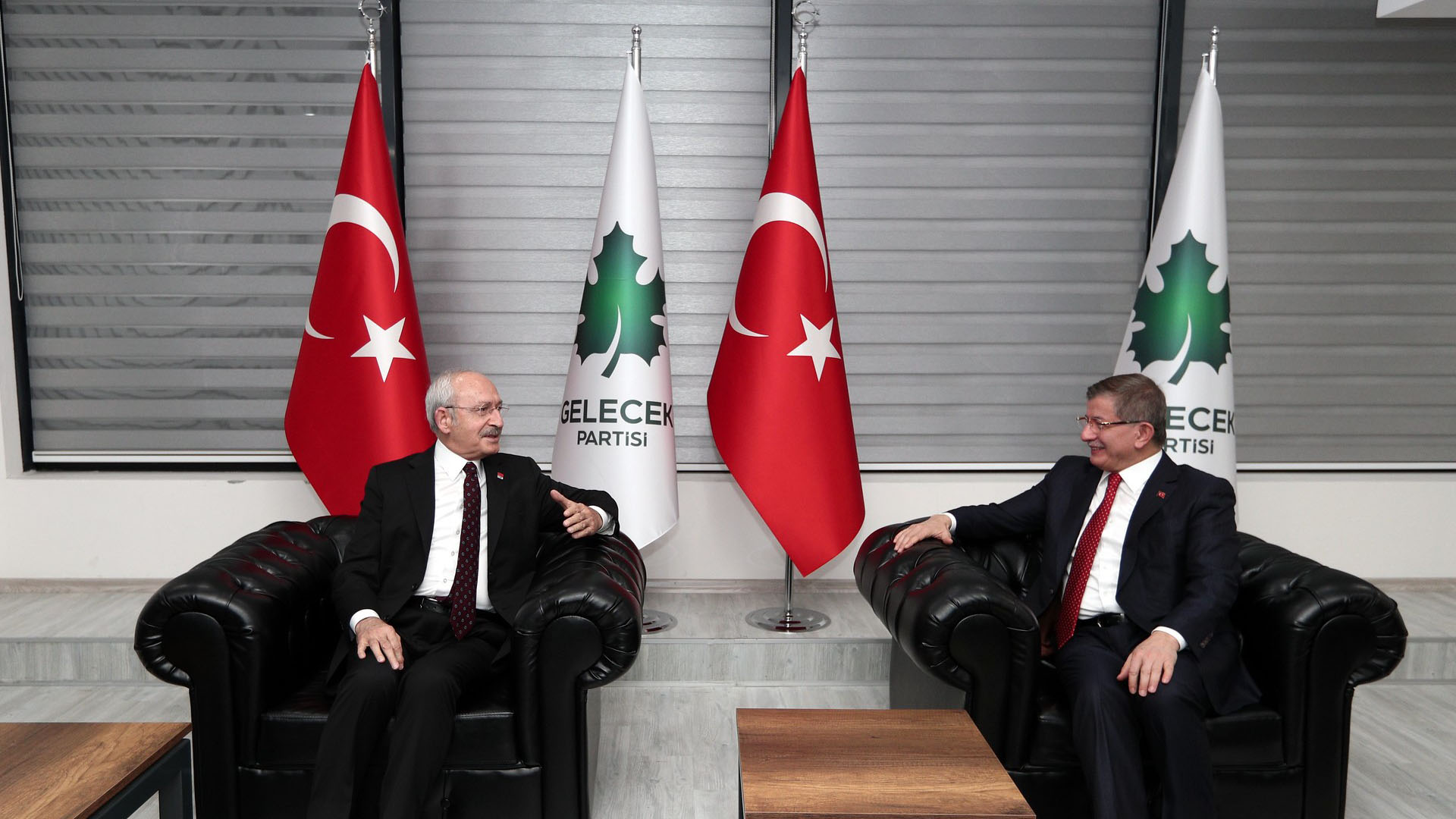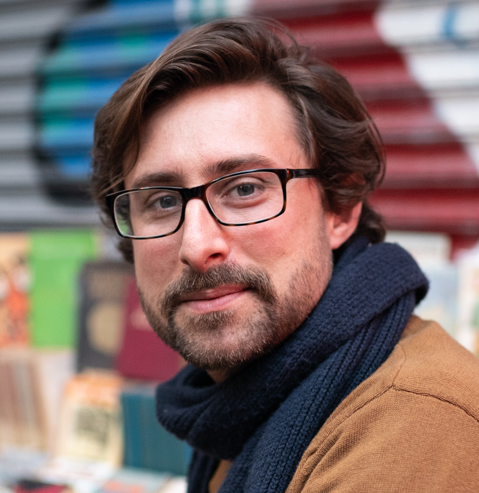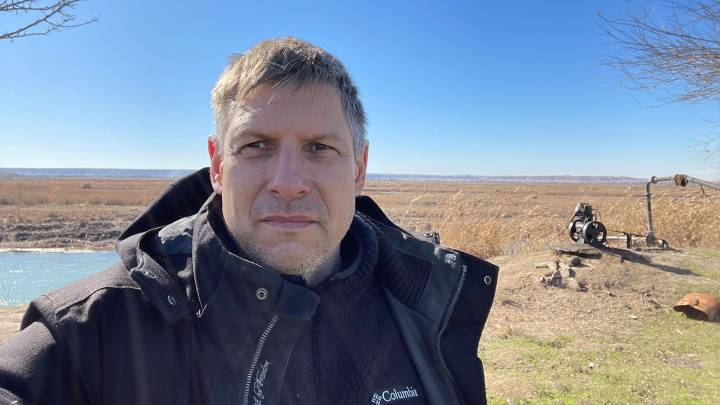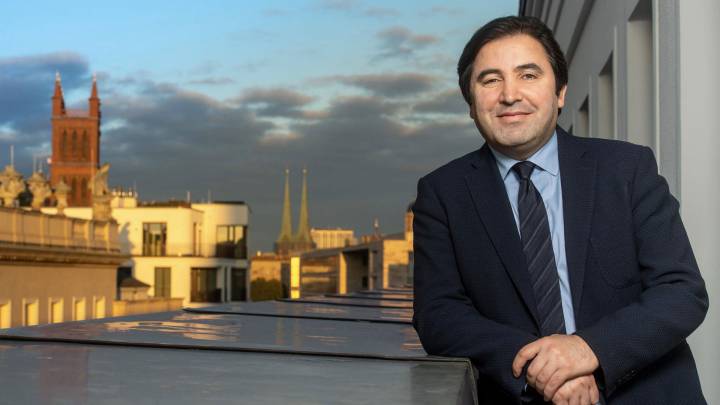Were the Kemalists really anti-Ottoman? Was the first democratically elected prime minister overthrown by the U.S.? Nicholas Danforth on popular misconceptions, Erdoğan’s No to NATO expansion, and the upcoming 2023 elections.
Why did President Erdoğan announce to veto Finland and Sweden’s NATO membership?
Nicolas Danforth: There is a wide constituency of people from different ideological perspectives who support the kind of things Erdoğan is doing, because of a deep suspicion of institutions like NATO. They are convinced that historically, rather than being a defender of Turkish interests, NATO has been a tool of the United States and the West to take advantage of Turkey by pursuing their own interests at Turkey's expense. From this point of view, the fact that NATO countries have disregarded Turkey's security concerns, particularly vis a vis the PKK, is a source of legitimate outrage. Erdoğan and many of his supporters see the current attempt at NATO's enlargement as an opportunity to force NATO to take Turkish interests seriously. Erdoğan is trying to redress what he sees as a deep rooted and historically grounded grievance.
It might be a popular move, is it a strategically smart move, too?
There's certainly been a lot of criticism from the opposition about the way Erdoğan has handled this. They may share some of the broader frustrations with NATO and some of Erdoğan’s concerns about the PKK presence in Sweden, but they see the very aggressive and public way that he has chosen to tackle this, as a tactical disaster – which I think it is. Erdoğan has gone about this in a way that guarantees that he will get maximum backlash and minimal concessions. Even people sympathetic to his broader aims point out that if he had done this more subtly and focused on a core number of achievable demands, instead of throwing out things like deporting a Swedish member of Parliament who isn't even from Turkey, that he could have actually advanced Turkish interests instead of grandstanding and alienating former allies.
Which political parties in Turkey are actually pro-Western or pro-NATO?
One of the deep ironies in the Turkish context is that the leftist, ‘pro-Kurdish’ HDP, which had good reason to be upset with NATO and the US because of their support for the Turkish military’s brutal counterinsurgency in the 1980s and 1990s, now sees Western support as a way of advancing Kurdish rights in Turkey.
In an interview last year, you argued that the US wouldn't care much about domestic issues like a possible HDP ban, as long as Turkey won't start a conflict with Greece or try to invade in Northeast Syria, for example. Now the Turkish government actually does both, in addition to vetoing Finland and Sweden joining NATO. Is Erdoğan putting US-Turkey relations at risk?
Coming from a historical perspective, it's easy to be very cynical about the US concerns regarding democracy in Turkey. It wants to see Turkey democratic, but it has several more pressing concerns. Particularly during the 1980s, when Turkey was undemocratic but still a good NATO ally, the United States was willing to look the other way, which in part is what created the mess we're in now. Turkey was never an easy ally to deal with, its leaders always stood up for Turkish national interests. But particularly during the Cold War there was a broader shared vision that brought both countries together. The challenge for Turkey now is that it's both undemocratic and not the kind of ally that the United States wants. It's very much possible for the relationship to go from bad to even worse.
As for Greece, Cyprus is also an important issue. The northern part is being integrated more and more into the Turkish state. What can we expect in the coming months?
It is genuinely worrying that people in Northern Cyprus, who follow this much more closely than I do, think there's a real risk of Erdoğan annexing the northern part of the island in advance of his next election. That doesn't mean it's going to happen, nor that it’s even the most likely scenario. But the very fact that it's on the table along with the provocations and the rhetoric makes a Turkish-Greek/Cypriot conflict much higher. By rejecting the Annan plan in 2004 Greek Cypriots did in a sense vote for the permanent division of the island. People warned that some of the things we're seeing today were going to be inevitable if there was no attempt to unify the island. The Greek side thought it could isolate the North perpetually and eventually get a better deal. There is a lot of blame to go around.
'At this point it has more to do with the fairness of the election than the choice of candidate’
What should Europe and the US do?
As much as the possibility of solving the conflict seems very remote right now, the US and Europe should do everything they can to make sure it doesn't get worse. Because if it becomes even more intractable, that's going to be a stumbling block in front of ever improving US-Turkish and European-Turkish relations. The situation is very alarming and hopefully we can get through the next year without it becoming dramatically worse.
Are there demands in Turkey to annex Northern Cyprus?
The reason Erdoğan would do this is because it would be popular amongst a certain swath of the country's voters. There would also be people who realize the long term economic and political damage that it would create and be therefore upset with it. But at the end of the day, it seems safe for Erdoğan to assume that if he were to do this, the immediate response would be nationalist enthusiasm.
Which brings us to the upcoming elections. Last year you wrote about İsmet İnönü, Atatürk’s successor and ‘a dictator who let himself lose an election’. Will there actually be a fair election, one that Erdoğan may lose?
It's impossible to predict, but I'm pessimistic by nature. In 1950, no one thought the election was going to be fair, even the US. When you read internal State Department correspondence, they assumed the Turkish government was going to rig the election the way it had rigged previous elections, and they made it implicitly clear they were okay with that. But then much to everyone's surprise İnönü actually let himself lose. There is a long tradition of free and fair elections in Turkey. I very much hope Erdoğan will continue that, although I have very serious doubts that he will.
Is the opposition even united enough to win? Who would be a suitable candidate?
I haven't actually been to Turkey for the past year, but from what I hear from Turkish colleagues, the consensus seems to be that Kemal Kılıçdaroğlu, the head of CHP, very much wants to run for president. The consensus also seems to be that he is not the best choice. There seems to be a great deal of frustration with his insistence on running. Given that other members of the party like Ekrem İmamoğlu and Mansur Yavaş poll better than he does in a hypothetical race against Erdoğan. But again, the frustration with Erdoğan is enormous. There is an unprecedented unity in the opposition and in a completely free and fair election even someone as famously uncharismatic as Kemal Kılıçdaroğlu could and would win. At this point it has more to do with the fairness of the election than the choice of candidate.
One issue the opposition agreed on is to go back to a parliamentary system. That also begs the question, why would a young, ambitious politician run when they get disempowered afterwards. It doesn’t seem very attractive.
I don't doubt the opposition is sincere in their desire to go back to the parliamentary system. It will take some time and work. Undoubtedly, the candidate that finally beats Erdoğan will enjoy a degree of prestige and political capital that will guarantee their political success for a good while.
History is very politicized in Turkey these days. A popular narrative is that Atatürk and his followers despised the Ottoman Empire and it was the AKP government and its Neo-Ottomanism that brought this great and important period of Turkish and Muslim history back to the surface.
Erdoğan has obviously been very enthusiastic about a particular version of the Ottoman Empire, one which combines a Turkish national power and deep piety and religiosity. It's easy to forget that in fact, while the Ottoman Empire was clearly not as popular in the 1930s and 1940s, it wasn't completely neglected or forgotten either. There was more enthusiasm for it than people remember.
Was the perception of the Ottoman empire the same as today?
In the 1930s and 40s, people used the word ‘Ottoman’ to refer to the royal family, which they were critical of, specifically of the final stages of the dynasty. But they did still celebrate some of the earlier sultans, people like Fatih Sultan Mehmet, the conqueror of Istanbul, who's very popular today. They also celebrated the military achievements and aspects of Ottoman architecture, even the mosques. They just refer to them as ‘Turkish military’, ‘Turkish architecture’, ‘Turkish mosques’ and ‘Turkish houses’. The meaning of the phrase has shifted. When people say ‘Ottoman’ now, they mean the entire 600 years of the Empire, whereas in the thirties they were quicker to use “Turkish” to describe the historical things they like.
‘Menderes fit very well with the culture of Eisenhower-era America’
You also talked about how the Golden Age of the Ottoman Empire, the 15th and 16th centuries, was regarded as some kind of predecessor to the Kemalist era.
The 500th anniversary of the conquest of Istanbul in 1953 is a great example for that. Instead of the very pious version of it that Erdoğan celebrates today, the country celebrated a secular, pro-Western version of the Ottoman Empire. The Kemalist opposition actually criticized the more conservative government for not holding bigger celebrations.
How did that secular, pro-Western version of the Ottoman Empire look like?
Writers in the 50s were eager to explain that Fatih Sultan Mehmet had been able to conquer Istanbul because he embraced innovation and modern technology. His use of cannons, his willingness to haul ships overland into the golden horn were examples of his revolutionary, innovative mindset. They even explained his conquest of Istanbul as being evidence of his desire to move the empire West. His tolerance of multiple of different religions within the Ottoman Empire was seen as an early predecessor of secularism. Some even suggested that his decision to turn Hagia Sophia into a mosque instead of destroying it prefigured Atatürk's decision to turn it into a museum. The point isn't whether any of these historical narratives are true or not. Some of them are, some of them are not. They were trying to present the Empire in a way that fit with their secular, pro-Western ideology.
The 1950s also play an important role in the AKP narrative. According to this, the Menderes government was a kind of religious democratic predecessor, with American pressure often blamed for the military coup-and the subsequent execution of the head of government.
The United States sponsored plenty of coups during the Cold War. But they tended to be against anti-American governments, unlike the government that was overthrown in 1960. Despite some disagreements and frustrations, the Menderes government was very pro-capitalist and pro-American. They brought Turkey into NATO and let the United States secretly host nuclear weapons on Turkish soil. So initially the United States was a little disappointed and worried by the 1960 coup. But at the end of the day, because the new government was pro-American and was going to keep Turkey in NATO, Washington didn't do anything and continued working with the new undemocratic junta. During the early part of the Cold War all parts of the Turkish political spectrum were pro-American. From a cynical point of view, there was no need for America to interfere with Turkish internal politics, because whoever came to power was going to pursue the foreign policy that America wanted.
Was Washington concerned about the re-emergence of religion?
Quite the opposite. US officials actually saw the Menderes administration as a culmination of the Kemalist movement and their openness to religion as a sign of the success of Turkish secularism. Having a Turkish government that could bring religion back into the public sphere in a way that seemed healthy, modern and Western was exactly what Americans wanted. Plus Turkey’s new leaders enjoyed drinking whisky and taking visiting diplomats to nightclubs. Menderes, with his high profile womanizing, was not in any way someone's vision of a radical Islamist and fit very well with the culture of Eisenhower-era America.
As a historian of this era, have you been following the critically acclaimed Netflix series ‘Kulüp’, set primarily in 1955?
I started watching it. One of the things I appreciated about the part that I watched is that it brought the popular culture of that era to the fore. When you read diplomatic accounts from the era, or the local press, nightclubs were a bigger part of the culture and the political life than anyone wants to remember. The version of modernity that was encapsulated by these clubs in the 1950s is not one that liberal progressives feel particularly great about, and it's not one that Islamists feel particularly great about. So everyone forgets that a certain kind of crassness and commercialism was such a big part of what it meant to be modern back then, in Turkey and in America.
Ignoring day to day and electoral politics for a moment, what will be the long-term effect of the Erdoğan era? It seems like the secular-nationalist opposition has become more open towards Kurdish grievances and towards embracing religion.
In the first decade of Erdoğan’s rule, there was a conviction amongst many of us in Turkey and in the US, that if Turkey overcame these deep-seated historical issues and became more tolerant of the Kurds, religiosity and headscarves, that it would finally become fully democratic. Experiencing the Erdoğan years proved that it was much more complicated. The tolerance towards religiosity quickly spilled over into a revanchist resentment against the secular establishment. Erdoğan’s initial political and cultural opening towards the Kurds fell apart and lapsed back into a very ugly and violent form of nationalism. The best-case scenario is that a new government will build on the liberalization that happened during the first decade of the AKP-era, make peace with the country's Kurds, and pursue secularism in a way that isn't hostile or oppressive towards religious people. However, watching what’s happened in other countries over recent years makes it harder for me to imagine there won’t be more complications.
Dr Nicholas Danforth is author of "The Remaking of Republican Turkey: Memory and Modernity since the Fall of the Ottoman Empire". He is a non-resident Senior Fellow at the Hellenic Foundation for European and Foreign Policy (ELIAMEP) and has written widely about Turkey, U.S. foreign policy, and the Middle East for publications including The Atlantic, Al-Monitor, Foreign Policy, New York Times and Washington Post.





